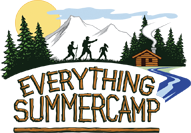Hey, Halloween Lovers!
The time of year has come again to celebrate Halloween, to dress up like scary creatures we’ve only seen in our wildest dreams, and to gorge ourselves on hard-earned candy! But aside from carving pumpkins and eating lots of good treats, what are we really celebrating on this spooky holiday?
It turns out that Halloween dates back over two thousand years ago and was originally a Celtic celebration called Samhain (pronounced sow-ain). It started on  October 31 and lasted until November first, sort of like the modern day New Year’s Eve celebration.
October 31 and lasted until November first, sort of like the modern day New Year’s Eve celebration.
In fact that’s exactly what it was for the Celts—it marked the end of the summer season and the beginning of winter, so they made it their New Year’s. They just didn’t have champagne, noisemakers, or Dick Clark. Their celebration looked a little more like what we call Halloween.
They lit bonfires, wore costumes, and carved out different types of gourds and pumpkins to set outside their doors as a welcome to friendly ghosts or to ward off the mean ones. Sound familiar?
Trick or treating isn’t really a new custom either. Back in the day, it was called guising—the phrase “trick or treat” wasn’t coined until sometime around the 1940’s. But little kids still dressed up in costumes to go door to door for coins and treats.
Records of people making this tradition date back all the way to 1895! They may not have been singing “Trick or treat, smell my feet,” but they still walked around collecting cakes, fruit, and money from neighbors.
I think one of the most interesting parts about Halloween is that any and all traditions that got their start before the 20th century are still being carried out today! Just think—the traditions we all know were being celebrated by folks from the late 1800’s! Cool, huh?
So from everybody at Everything Summer Camp, Happy Halloween! And thanks for reading!
- John

